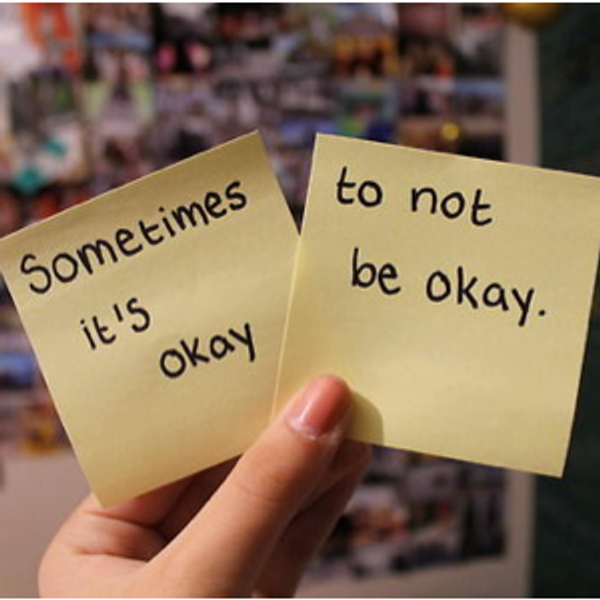Depression is not neatly packed into a transparent vessel of established behaviors, signs or traits. It's an unpredictable state unfazed by affluence or brilliance. You can’t intuitively identify a person who is depressed, partly because of the agonizing need to conceal and not let others become aware of the undeniable sickness.
It is a heavy word in both a literal and figurative sense. The heavy feeling of it seeps into the crevices of the mind that house our sense of self, it becomes a fever of distorted reality. The quirky straight-A best friend whose “kept together” organized life you envy is actually battling haunting thoughts on a daily basis, and all you can do is provide consoling words to her that do nothing more than smooth the surface clean. Your friend whose material wealth is more than he knows what to do with is falling at the seams despite “having it all.” The beautiful girl whose down to earth and likable nature whom everyone wants to befriend too is concealing a rugged battle within her mind.
For others such as myself, it’s the harrowing fear of coming to terms with the fabricated nature of my outer shell. Facing the reality that I’m not a celestial being that is unfazed by the grips of the darker side of human nature, despite my synonymy with “strength” and “inspiration.” Putting on a bulletproof smile for the family, when being asked how the school is going, silently pushing the subject matter elsewhere. Somewhere that doesn’t include the constant fear of failure and relentless shame for attending such an accredited school.
Instead, taking the easier route of denial and careful construction of a perfect external persona. Someone who is likable, optimistic, witty and laid-back. Although none of these traits are falsified, they are over accentuated and the very foundation of these self-established ideals become a set-up for failure when they are not met. Maintaining a façade of stability becomes an opus for defining myself and having some sense of control over my life.
It is self-affliction and deprivation, in one way or another. It’s the mind’s way of fading the colors of an individual, leaving a saturated if not a transparent smudge of a person. The things we used to love to do, now seem like a daunting chore. The bright visions of success are now a hazy blur at the end of a tunnel. Staying in bed seems like an easier task than making it to class. Peers and friends are quick to dismiss you not being okay as a product of triviality and laziness, and your avid sense of denial wants to believe it. The hopelessness that stems from believing that you might be sad is far too much to handle, so you cushion the fall with distractions. You delay the fall as long as you can because not being okay hosts a plethora of implications and stigmas that seem scarier than the disorder itself.
There is shame attached to it. The very implement of the word is daunting, note it is only used once in this entire article and instead replaced by the phrase "not being okay." There are assumptions about your capability and will to withstand tasks and obligations are brought to the forefront. We still have aspirations and goals, but our timeline to fulfill them might be different from others. Some of us might stay an extra year in school or realize that school isn’t for us.
We won’t wake up in the morning and be suddenly “cured” of all our demons, likewise we aren’t always lifeless beings incapable of experiencing joy. Everyone is different and affected in a multitude of ways. Everyone is on a different stage in their life and there is no one-size-fits-all model to coping. However, the best advice I can offer from experience is to maintain an unapologetic sense of self and surround yourself with people who unconditionally care about your happiness. The first step to getting "better" is to emancipate yourself from the isolating logic that tells you you need to deal with this alone. Afterall, it's okay to not be okay.





















